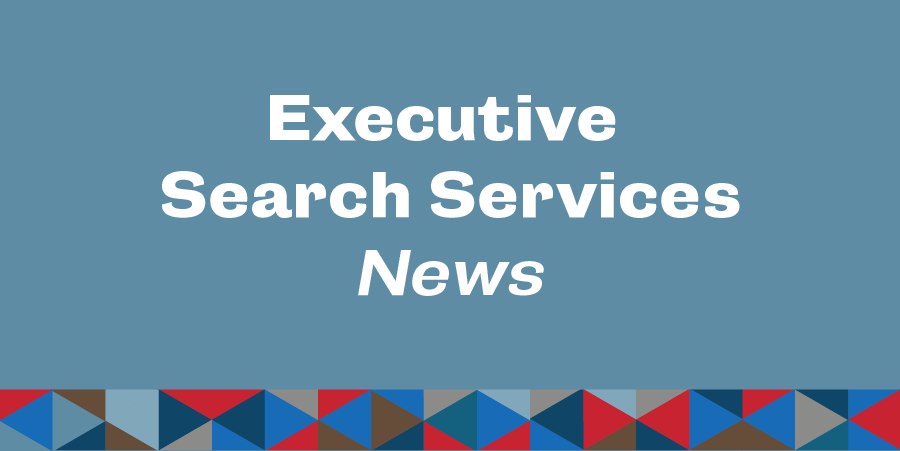Top 10 Things HR Should Share with Their Board of Trustees
District HR staff regularly interact with their school board members, but often the interactions may only be closed session discussions about employee performance issues. HR is responsible for a wide range of topics their board members should know about—far more than just employee discipline.
While there certainly are more than just 10, we’ve identified the top 10 things HR should share with their board members.
1. Market Comparison Information
HR should communicate at least annually with their board how the district compares to its peer districts in terms of compensation, including salaries and benefits. Board members also should be informed about the impact of the annual salary increase on market competitiveness—did the increase the district granted improve or at least maintain its position in the market? HR can also use market comparison data to confirm identified issues with recruitment or retention and provide support for corrective measures (e.g., raising bus driver pay to better align with market value to help recruit and keep drivers).
2. Updates on HR Initiatives
HR inevitably has at least a few projects on its plate at any given moment. From T-TESS implementation to job fairs to changing its HRIS, board members benefit from hearing updates on milestones for high-profile HR projects with district-wide impact. Don’t forget to include ways that HR is innovating in these updates, even if that doesn’t involve implementation of a whole new product or system (e.g., streamlining the onboarding process).
3. Required Reporting
HR staff report district data to a variety of sources each year, and board members will benefit from seeing summary data, as well. Presentation of detailed data is not necessary, but district-wide summary data, such as the number of class-size waivers or teacher certification status across the district, would be helpful information for board members to know.
4. Leave Policies
District leave policies can have a significant impact on employee absenteeism and substitute costs. Board members should know what the district’s leave policies are, and HR staff also can help board members identify where improvements can be made to leave policies to help streamline processes and make it easier for HR to manage employee absences.
5. Staffing Trends
HR should share staffing trends with board members at least once a year, including things like:
- The number of employees in each general category (e.g., number of teachers, administrators, instructional aides),
- How much of the district’s budget is dedicated to personnel,
- What percentage of the budget is allotted for each category of personnel, and
- Student growth rate compared to staff growth rate.
6. Other Helpful Data
There is a wide variety of HR-related data that board members should be made aware of. Some suggestions include:
- Turnover rate and change over time,
- Details about where turnover is occurring (e.g., grade level, subject area, department, experience level, campus),
- Substitute fill rate,
- Number of teacher vacancies at the start of school, and
- Employee climate survey results.
In addition to proactively sharing regular updates in the six areas listed above, HR should be prepared to answer HR questions from board members. Here are some of the most common questions asked by board members and suggested responses from HR staff.
7. Why Don’t We Pay Our Best Employees More?
This is one of the most frequently asked questions from board members—and it’s a valid one. Why don’t we? First, districts must have a market-competitive base pay structure in place. Differentiating pay for performance won’t matter if the base pay structure won’t allow a district to recruit and retain high-performing employees. Second, districts need to be able to define what performance they value and communicate that to employees. And, finally, districts need a clear and defensible way to accurately measure employee performance. Until recently with the implementation of T-TESS, most districts haven’t had a good method for evaluating teachers against desired performance standards. A district needs to have all three of these systems in place before it can venture into pay-for-performance territory. There are districts in the state that have gotten to that point, so it certainly can be done. Just be sure that all three systems are in place and widely accepted before heading into the world of performance pay.
8. Can My Relative Be Employed by the District?
The short answer is “it depends.” If your district is in a county with fewer than 35,000 people, then the answer may be yes. If your district is in a more populated county, then it depends on the position and the timing of the hire. TASB Legal Services has developed a detailed guide to Conflicts of Interest and Nepotism available here that provides additional details about when and how the rules apply.
9. Can We Give Employees a Bonus During the Holidays?
Again, the short answer is “it depends.” Districts can grant a one-time payment during the holidays if the board has already approved the payment as part of the compensation plan and budget adopted before the school year started. Before making the decision to grant a one-time payment to employees, there are things a board should consider. A document in the HR Library provides additional details that boards should take into account when making that decision.
10. How Should I Respond to Employee Complaints About Their Supervisor?
Because of an existing relationship, employees will sometimes go directly to a board member to complain about their supervisor. Before this happens in your district, consider providing guidance to your board about proper protocol. First, HR should share district processes for complaints with the board and how to respond if they are approached with such a complaint. Second, sharing this information allows HR to build a partnership with the board so employees will see that district administration and board members are on the same page with these matters.
A board that is knowledgeable about HR information and procedures can serve as an ally. HR staff should focus on maintaining open lines of communication with board members and providing information throughout the year—not just when an HR issue happens.

Amy Campbell
Amy Campbell joined HR Services in 2012. She has more than 20 years of experience in human resources, including 19 years as an HR consultant for school districts and other public sector organizations.
Campbell has a bachelor’s degree from Florida State University. She is a Society for Human Resource Management certified professional (SHRM-CP) and has received the professional human capital leader in education certification (pHCLE).
HR Services

Subscribe to HRX
Stay up to date with all the latest HR news and trends by joining the HRX mailing list!





